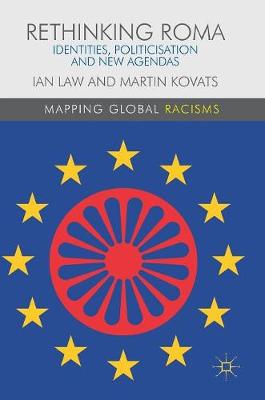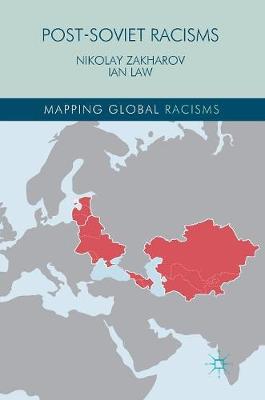Mapping Global Racisms
2 total works
This book provides the first comprehensive analysis of the emergence, development and implications of the Roma political phenomenon in contemporary Europe. It also challenges the conventional epistemological basis to political claims of distinct Roma people and argues that the contemporary politics of Roma is better understood as the public application of Roma identity.
In recent times a new word has entered the political lexicon across Europe and beyond: Roma. Thirty years ago it would have been hard to encounter the public use of the word outside of a small number of academics and activists. In the second decade of the new millennium, Roma has become a dynamic political identity championed by hundreds of organisations, thousands of activists and applied to millions of people across Europe and beyond. Roma has become an agenda item for local and national authorities, as well as being taken up by the European Union and other international organisations. In challenging the conventional epistemology, this book examines the principal interests and processes that are constructing Roma as a public, political identity encompassing highly differentiated groups of people.
This book brings together critical race theory and theories of ethnic mobilisation to provide a new critical framework for understanding Roma identity, history and transnational politics. It will be of particular interest to students and academics within the fields of global racialization and ethnicity studies.
This book is novel not only in its theoretical framework, which places racialisation in post-communist societies and their modernist political projects at the centre of processes of global racism, but also in being the first account to examine both these new national contexts and the interconnections between racisms in these four regions of the Baltic states, the Southern Caucasus, Central Asia and Belarus, Moldova and Ukraine, and elsewhere. Assessments of the significance of the contemporary geopolitical contexts of armed conflict, economic transformation and political transition for racial discourse are central themes, and the book highlights the creative, innovative and persistent power of contemporary forms of racial governance which has central significance for understanding contemporary societies.
The book will be of interest to scholars and students in the areas of racism and ethnicity studies.
"Post-Soviet Racisms is the first comprehensive comparative study of the politics of race in post-Soviet states. Why do racialising or overtly racist theories at times become central to the construction of post-Soviet identities? How do racisms of the dominant national groups and minorities compare? How does the process of the transnational circulation of racist and racialising discourses work? These are some of the important questions which are addressed in this ground-breaking book that enriches our understanding of the complexity of the current developments in the region."
-Vera Tolz, University of Manchester, UK

